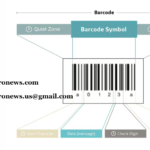Dementia is a complex condition that affects millions of people around the world, causing memory loss, confusion, and difficulty with daily tasks. To help individuals with dementia maintain a higher quality of life, dementia day programs are often available. These programs offer specialized care, support, and activities designed for those with dementia. However, understanding the costs associated with these programs can be confusing. In this article, we’ll explore the various factors that affect dementia day program costs, what you can expect to pay, and how to find affordable options.
What is a Dementia Day Program?
A dementia day program is a structured service that provides care and activities for individuals with dementia during daytime hours. These programs are designed to enhance the well-being of participants through physical, mental, and social activities, all while giving caregivers a break from their duties.
Typical dementia day programs include services such as:
- Supervised activities like arts and crafts, games, and music therapy.
- Assistance with daily tasks like eating, toileting, and mobility.
- Health monitoring by trained staff.
- Social interaction to reduce loneliness and isolation.
The main goal is to provide a safe and engaging environment where individuals with dementia can thrive during the day. For caregivers, these programs offer a much-needed respite, allowing them to rest or attend to other responsibilities.
What Factors Affect Dementia Day Program Costs?
The dementia day program cost can vary widely depending on several factors. It’s important to understand these key factors so that you can make an informed decision when choosing a program for your loved one:
- Location: The cost of a dementia day program often depends on the geographic area. Urban centers with higher living costs tend to charge more, while rural or suburban areas may offer more affordable options.
- Level of Care Provided: Some dementia day programs offer basic services like social activities and health monitoring, while others may provide more advanced medical care, including nursing services or physical therapy. Programs that offer specialized medical care tend to have higher fees.
- Duration and Frequency of Attendance: The number of hours or days a person attends the program also impacts the cost. Full-day programs typically cost more than half-day programs. Likewise, attending multiple days a week increases the total monthly expense.
- Staff-to-Participant Ratio: Programs with a higher staff-to-participant ratio (more staff members per participant) often charge more because they provide more personalized attention and care. This is especially important for individuals with advanced dementia who require more one-on-one support.
- Additional Services and Amenities: Some programs offer additional services such as transportation, meals, or specialized therapies. While these services can enhance the experience for participants, they can also add to the overall cost of the program.
What is the Average Cost of Dementia Day Programs?
Understanding the average dementia day program cost can help you budget and plan for this type of care. On average, dementia day programs in the United States cost between $70 and $150 per day. However, costs can be higher in certain areas or for programs that provide extensive services.
For instance, in large cities like New York or Los Angeles, you might pay closer to $150 or even more per day. In contrast, smaller towns or rural areas might offer programs for as little as $60 to $80 per day. It’s essential to check local options and compare programs to find one that fits both your budget and the care needs of your loved one.
Many families choose to have their loved ones attend a program a few days a week rather than every day to help manage the cost. For example, attending three days a week could cost anywhere from $900 to $1,800 a month, depending on the program.
Are There Financial Assistance Options Available?
One of the most common concerns for families is how to afford dementia day programs. Fortunately, several financial assistance options may be available to help cover the dementia day program cost:
- Medicaid: In some states, Medicaid may cover the cost of adult day care, including dementia-specific programs. However, eligibility requirements vary, so it’s important to check with your state’s Medicaid office.
- Veterans Benefits: Veterans and their spouses may be eligible for benefits through the Department of Veterans Affairs (VA), which can help cover the cost of dementia day programs.
- Long-Term Care Insurance: If your loved one has long-term care insurance, it may cover part or all of the cost of a dementia day program. Be sure to review the policy details to see what’s covered.
- Non-Profit and Community Organizations: Some non-profit organizations and community groups offer financial assistance or sliding-scale fees based on income. Local senior centers or Alzheimer’s associations may be able to direct you to these resources.
How to Find Affordable Dementia Day Programs
Finding an affordable dementia day program requires a bit of research, but it’s possible to locate quality care that fits your budget. Here are some steps to help you find a program within your price range:
- Research Local Programs: Start by searching for dementia day programs in your area. You can often find listings through local senior centers, Alzheimer’s associations, or online directories. Call each program to inquire about their rates and services.
- Ask About Sliding Scale Fees: Some programs offer sliding scale fees, which means the cost is based on your income level. Be sure to ask if this option is available when you contact the programs.
- Check for Financial Aid: As mentioned earlier, Medicaid, veterans benefits, and long-term care insurance may help cover the cost. Be sure to explore these options before committing to a program.
- Compare Services: When comparing programs, consider not just the cost, but also the level of care provided. A less expensive program may seem appealing, but if it doesn’t meet your loved one’s care needs, it may not be the best choice.
The Benefits of Dementia Day Programs
While cost is an important consideration, it’s also essential to weigh the benefits of a dementia day program. These programs provide numerous advantages for both participants and caregivers, including:
- Social Interaction: Individuals with dementia can become isolated, which can worsen their symptoms. Dementia day programs offer opportunities for social interaction, helping to reduce loneliness and depression.
- Cognitive Stimulation: The structured activities in these programs, such as puzzles, games, and music therapy, help stimulate the brain and may slow cognitive decline.
- Physical Activity: Many dementia day programs include gentle exercise activities, which are beneficial for maintaining physical health and mobility.
- Respite for Caregivers: Caregiving for someone with dementia can be exhausting. Dementia day programs provide caregivers with much-needed time to rest, work, or attend to other responsibilities, reducing burnout.
Tips for Choosing the Right Dementia Day Program
Choosing the right dementia day program for your loved one is a crucial decision. Here are some tips to help guide you through the process:
- Visit the Program: Before enrolling your loved one in a program, visit the facility to observe the staff, participants, and activities. Make sure the environment is safe, clean, and welcoming.
- Ask About Staff Training: Ensure that the staff members are trained to work with individuals with dementia. They should have experience handling challenging behaviors and providing the appropriate level of care.
- Inquire About the Daily Schedule: Ask for a sample daily schedule to see what activities are offered and whether they align with your loved one’s interests and abilities.
- Get Feedback from Other Families: If possible, speak with other families who have used the program to get their feedback on the quality of care provided.
Conclusion
Dementia day programs offer essential support and care for individuals with dementia, as well as respite for caregivers. While the dementia day program cost can vary, it’s important to consider the level of care, services offered, and financial assistance options available. By doing thorough research and weighing the costs and benefits, you can find the right program to meet your loved one’s needs while staying within your budget.




























































































